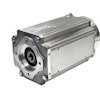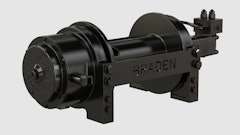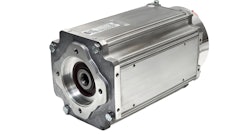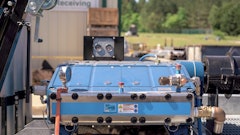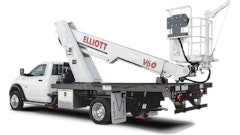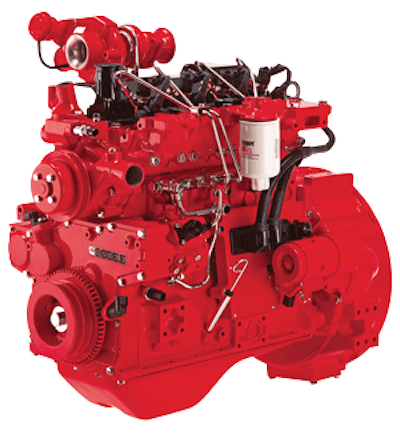
Business and change seem to be interchangeable. The economy goes up then falls into recession. Demand for certain equipment peaks at specific seasons. Governmental agencies change requirements and encourage new kinds of energy sources.
Along with the rest of society, engine and equipment manufacturers are investigating ways to decrease their reliance on petroleum products such as gasoline and diesel fuel. What exactly are alternative fuels, and what do they mean for rental centers and the equipment they rent? Here's what three engine makers had to say.
What and why?
The term alternative fuel can refer to a variety of products. "Alternative fuels are anything other than the traditional gasoline or diesel fuel," explains Edward Lyford-Pike, chief engineer of advanced alternative fuels for Cummins Inc. "These can be gaseous or liquids and come from renewable or nonrenewable sources."
Cummins has made significant investments to investigate all forms of alternative fuels. "The major emphasis has been on natural gas and biofuels, specifically biodiesel," he says. "Biofuels, such as ethanol, biodiesel or renewable diesel, are the main alternative fuel viable for the construction market now and in the near future. There are some indoor applications where natural gas or propane are used, such as for small forklifts."
William Durant, vice president and general manager of Hatz Diesel of America, adds, "For diesel engines, alternative fuels would be bio-fuels per ASTM specifications. These are blended with regular diesel fuels."
Hatz is investigating fuel blends containing higher percentages of bio-fuel and lower amounts of diesel that won't harm diesel injection components. "Alternative fuels will continue to be an important source of fuel versus using oil-based fuels," Durant predicts.
For John Deere Power Systems (JDPS), alternative fuels mean non-petroleum fuels such as biodiesel, electricity, ethanol, hydrogen, natural gas and propane. "John Deere continually researches alternative fuels," Doug Laudick, manager of product planning, says. "For example, we have been researching ethanol, compressed natural gas, electric hybrid, cellulosic fuel and biodiesel for many years."
He continues, "JDPS, along with most off-highway diesel engine manufacturers, allows equipment operators to use biodiesel in varying concentrations, providing that users follow strict quality standards. In fact, the fuel John Deere fills within its factories is B5 biodiesel."
The reasons for all this research include customer demand and governmental pressures. "Most of this investigation is due to customer demand as well as to the increasing number of incentives and mandates from the government," Lyford-Pike notes. "We have also seen an increase in the distribution and certification/quality standards of biofuels, which have led to increased use."
He adds, "Customer demand can be due to economics, such as users trying to cut operational costs (fuel economy depends on a number of factors, though), or it could be a desire to be 'green' and trying to reduce a company's carbon footprint by using a renewable fuel."
Laudick points out, "As the market continues to be increasingly conscientious of the environment, we are hearing more customers ask about what alternative fuels will be available in the future. Additionally, it is likely that new emissions regulations will come into effect over the next few years, and we have been researching alternative fuel options in anticipation of this. However, our research indicates that diesel continues to be the most efficient fuel for off-highway applications today."
The future is now
According to these experts, alternative fuels use is not just something that will happen in the future. These fuels are already in use in equipment similar to what you might rent today, but the shift might be gradual.
"Alternative fuels will be used in all segments of the industrial and construction markets," Durant says.
Lyford-Pike agrees. "We don?t see a particular equipment segment looking into alternative fuels more than another," he says. "We do see some customers that operate equipment in particular environments trying to maximize the benefit of a specific fuel. One example could be trying to achieve lower particulate matter from biodiesel emissions, although the latest engine and after-treatment technologies may equal that benefit."
He continues, "This change to alternative fuels is already happening in today's market, but we currently don't see any huge shifts in fuel usage in the near future."
When equipment powered by biofuels becomes popular, manufacturers do not expect fuel choice to impact machine costs.
"In terms of biodiesel B20 blends, for instance, the cost of the engine should be the same and the cost of the equipment would not change much either, unless major upgrades were needed to make the equipment capable for that fuel," Lyford-Pike says.
Durant agrees. "The cost of equipment will not be affected by the alternative fuels, but costs will be much more affected by emissions-mandated laws and the extra components or systems required to meet more stringent emissions standards," he says.
What it means for your business
For rental centers that need to refuel equipment before renting again, and have to maintain and repair construction equipment, alternative fuels will have some impact.
"Similar to today's biodiesel, rental houses will need to remember that when they first switch to a new type of fuel, they may need to make some minor adjustments to the equipment," Lyford-Pike explains. "For instance, due to the solvent nature of biodiesel and its potential for 'cleaning' of the vehicle fuel tank and lines, new fuel filters must be installed when switching to biodiesel on used engines. Then fuel filters would need to be replaced at half the standard interval for the next two fuel filter changes. After that point, the rental center can return to the usual filter change intervals."
He offers other advice:
Before using any alternative fuels, it is best to check that your engine is approved to use the fuel and that the fuel meets all needed quality standards.
It is important to keep in mind that biodiesel has a much shorter shelf life than regular (petroleum-based) diesel. "For example, Biodiesel B20 blends need to be used within six months of delivery and should not be allowed to sit in an engine for more than three months," Lyford-Pike points out. "This can be an issue for the rental business if the equipment doesn't see regular use."
Laudick notes, "For equipment users, JDPS prefers use of 5% blends (B5) but biodiesel concentrations up to a 100% blend (B100) can be run in all John Deere engines, including all non-emissions-certified engines. For B20 blends or higher, the biodiesel (B100 portion) must meet ASTM D6751 or EN14214 specification. Any blend B20 or higher is also required to use a John Deere-approved fuel conditioner containing a detergent/dispersant."
The company also encourages biodiesel users to purchase biodiesel blends from a BQ-9000 Certified Marketer and to source from a BQ-9000 Accredited Producer, as certified by the National Biodiesel Board. (Certified Marketers and Accredited Producers can be found at www.bq-9000.org.)
In the long run, however, JDPS suggests, "To ensure consistency and reduce business costs, we recommend that rental businesses avoid managing multiple fuels," Laudick says. "We encourage rental companies to prevent fueling errors by employing one fuel type."
In conclusion, he adds, "We believe that diesel fuel or biodiesel will continue to be the most cost-effective and environmentally sound choices because of their superior fuel economy. With biodiesel, you get the added environmental plus because it's produced from renewable sources. Remember, diesel engines have become cleaner as emissions regulations and diesel fuel standards have become more stringent. Especially as we approach Interim Tier IV in 2011, diesel engines will continue to be the standard that an environmentally conscious industry relies on."

